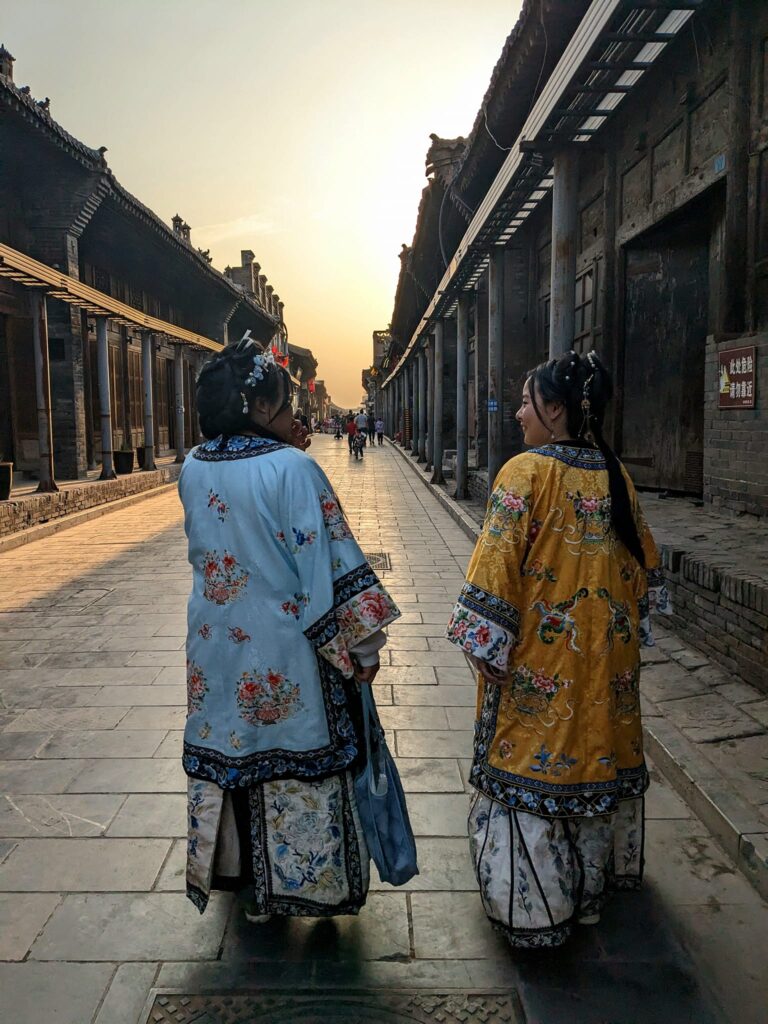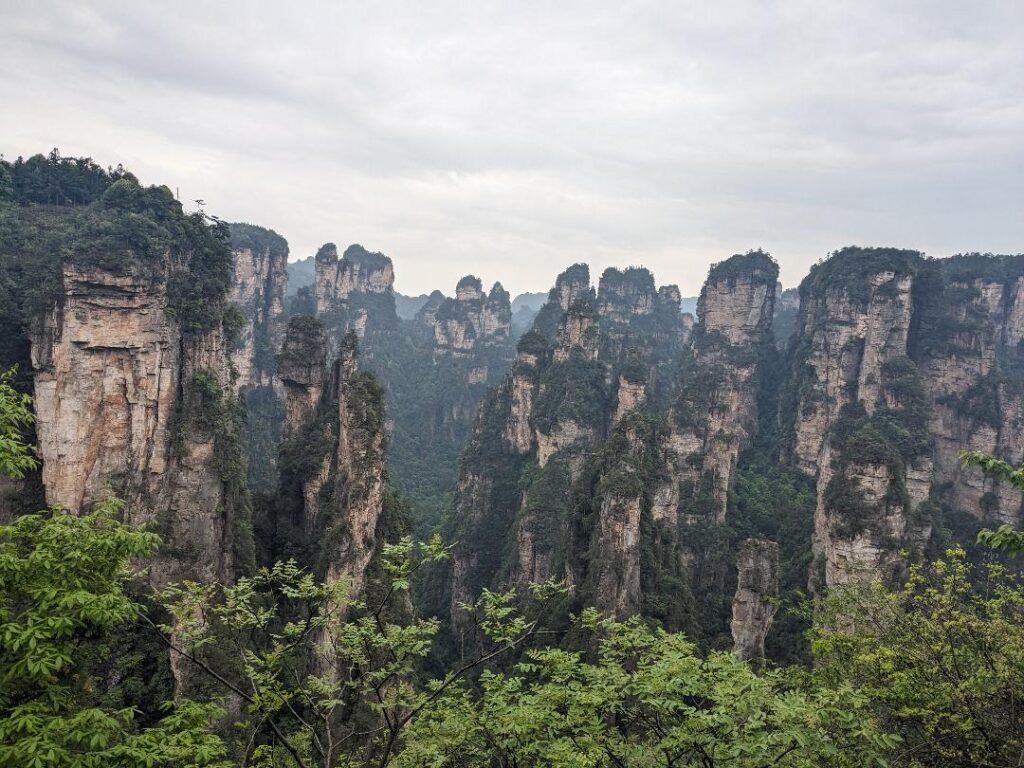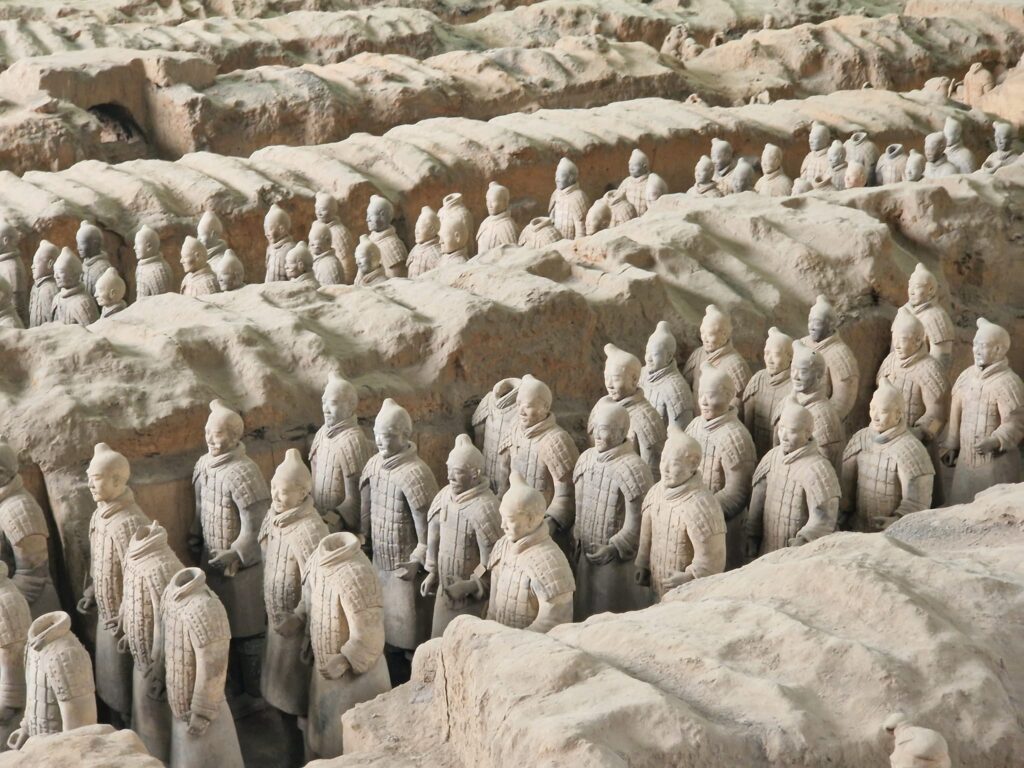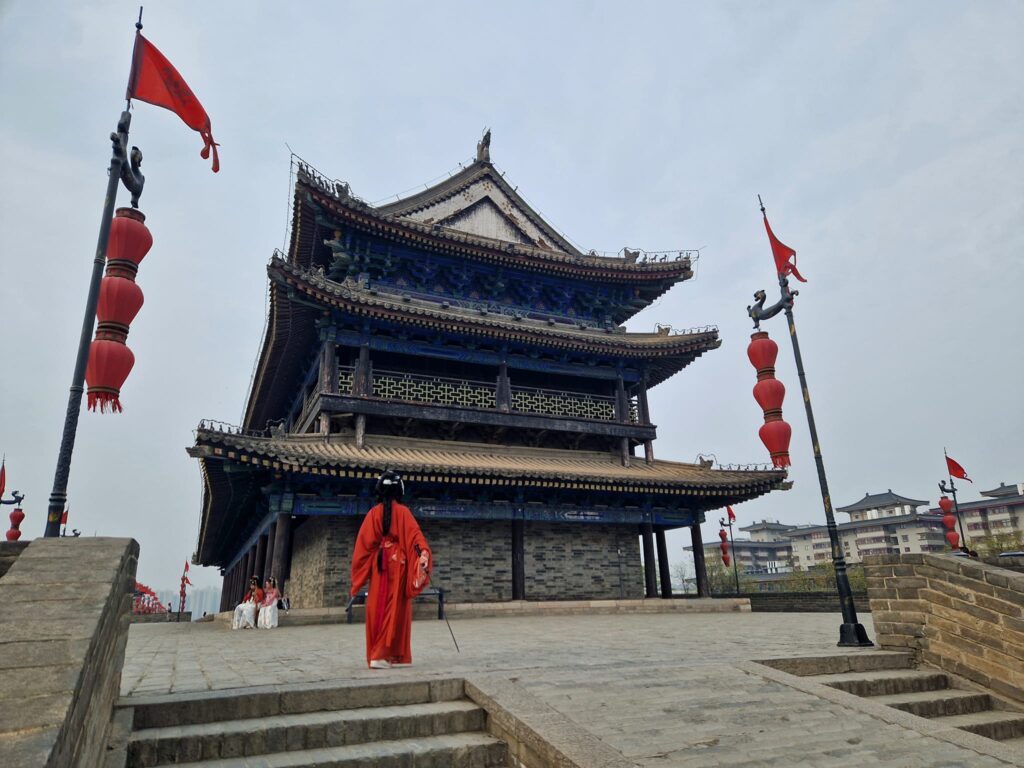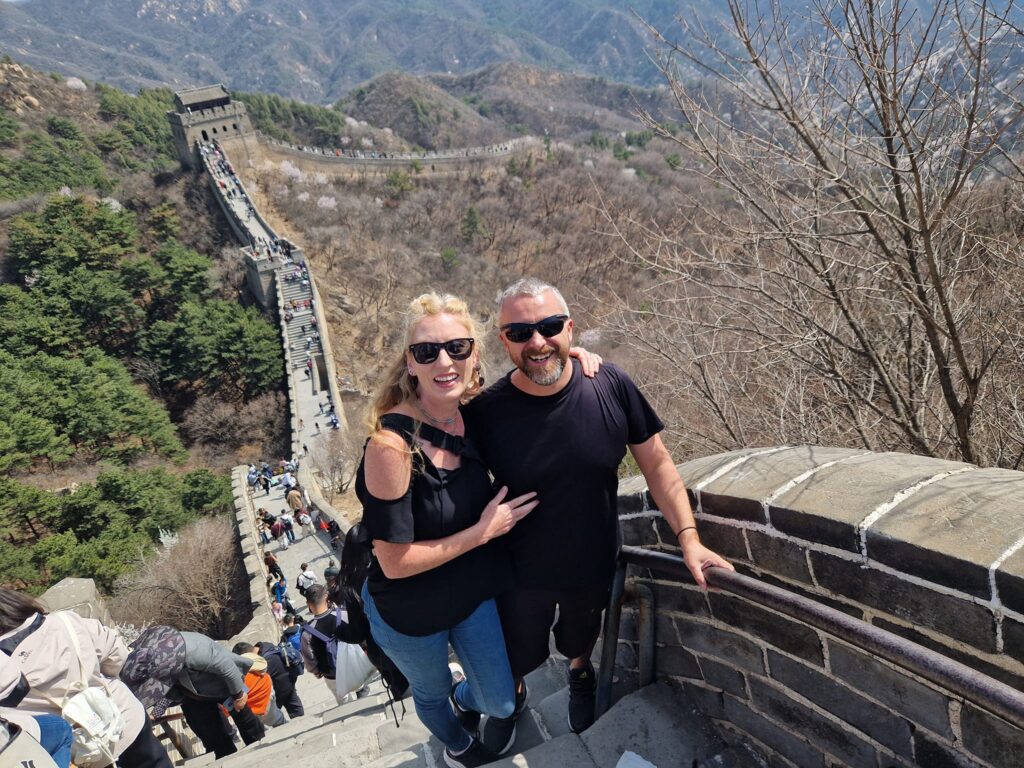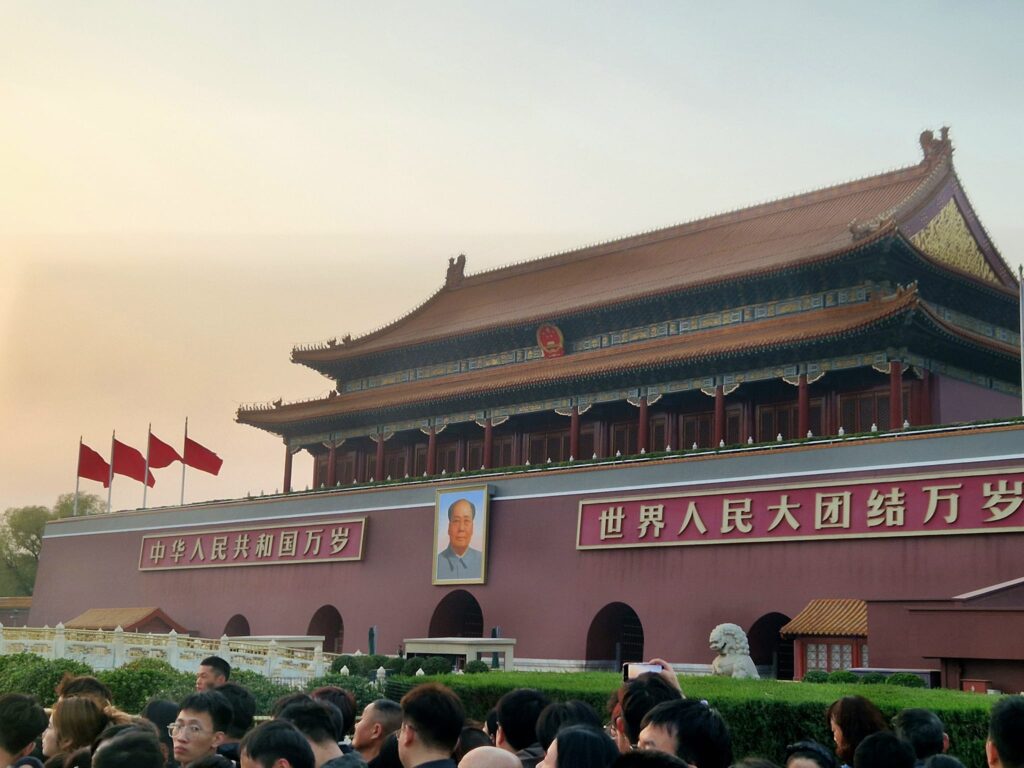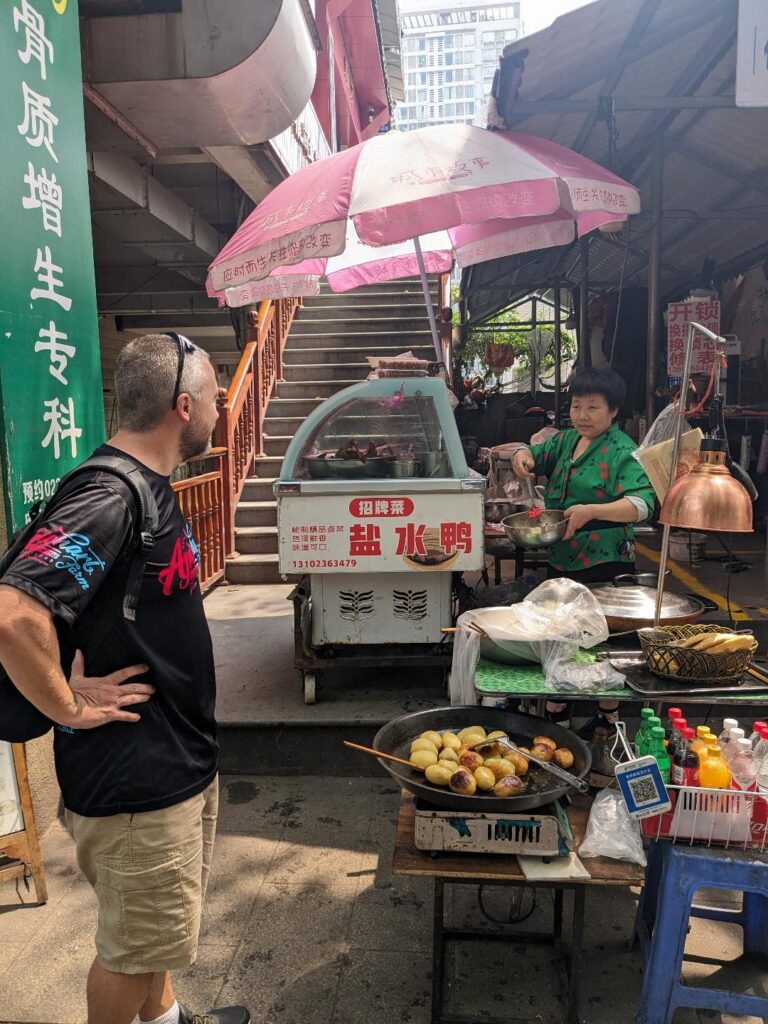Last updated on May 26th, 2025 at 08:38 am
Are you planning to visit China but are struggling to find clear information? We completely understand this frustration as that is exactly how we felt when planning our 30-day China itinerary.
This travel guide will provide all the China travel tips, covering all the essentials such as China visa, top attractions, best time to visit China, budget, transport, and much more.
Check out our 2-week China itinerary – your guide to the perfect travel route through China’s top destinations. With insider tips and the best transport options included, you’ll spend more time exploring and less time figuring things out. If you’d rather skip the planning and enjoy the convenience of a ready-made adventure, treat yourself to this expertly curated 10-day China tour.
China Travel Tips: Do I Need a China Visa?
First up on our list of China travel tips is an important one – let’s figure out how to get a visa for China.
Many people get put off visiting China due to the complicated process of obtaining a visa for China. However, we have good news:
In November 2024, China introduced a 30-day visa-free policy for 35 countries, including Ireland, Australia, and New Zealand.

While the United States, Canada, and the United Kingdom are not included on this list, we have some good news for you as well! Citizens of these countries can now apply for a 240-hour China transit visa, up from the previous 72-hour limit. This means you can enjoy a visit to China for up to 10 days.
If you plan to visit Hong Kong or the gambling haven of Macau, no visa is necessary.
China Travel Tip: Make sure to use China’s OFFICIAL WEBSITE, many sites claim to be “official websites” but they most definitely are not.
For a more detailed read on how we obtained our 30-day visa for China at the time, check out – Nomadic Backpacker – How to get a tourist visa for China.
Before you head off on your China adventure, be sure to read which China travel apps to download – trust us, this is very important information when visiting China!
China Travel Tips: What is the Best SIM Card For China?
We have researched a lot about which VPN and SIM cards are the best for China travel, with many vague or contradicting information.
To save you the stress of having your phone blocked and being basically useless during your visit to China, we suggest keeping it easy and purchasing an eSIM for visiting China.
China Travel Tips: What are the Best Places to Visit in China?
We traveled China for 30 days, and here is our list of the best places to visit in China.
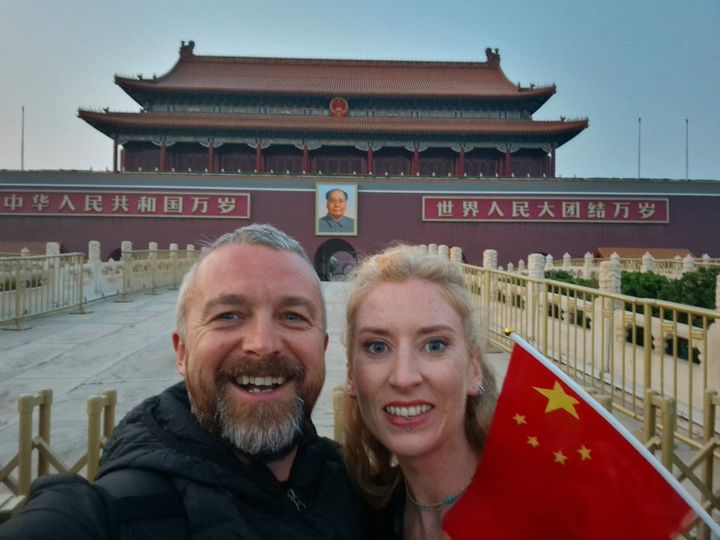
The Great Wall of China: How could we not start with the most famous China attraction? The Great Wall is an iconic symbol of China, and undoubtedly one of the most famous landmarks in the world.
Spanning over 13,000 miles, the Great Wall of China was originally constructed to defend against Mongol invasions. Today, it stands as a powerful symbol of China’s strength and resilience. A visit to Beijing is incomplete without experiencing this iconic wonder, offering breathtaking views and a deep connection to China’s rich history.
Experience one of the world’s greatest wonders with a unique tour to the quieter Mutianyu section of the Great Wall, where you can enjoy the iconic site away from the crowds. Now that’s a true China bucket-list experience!
Alternatively, if you are a budget-traveler in China you can find out how to visit the Great Wall of China via public transport.
The Forbidden City: The Forbidden City in Beijing is a must-see for anyone interested in Chinese history and culture. Serving as the imperial palace for nearly 500 years, it is filled with incredible architecture, and provides a fascinating glimpse into China’s rich past, making it one of Beijing’s top attractions.
While visiting the Forbidden City, be sure to explore nearby Beijing attractions like the vibrant “Liangmaqiao” area, also known as Beijing’s Chinatown, which blends Chinese culture, traditional shops, and modern businesses.
Pingyao: Pingyao is a captivating destination for those wanting to step back in time and experience traditional China.
As a UNESCO World Heritage site, this well-preserved ancient walled city is filled with historic temples, narrow streets, and traditional courtyard homes. Its charm lies in its timeless atmosphere, offering a peaceful escape from China’s bustling modern cities.
For history lovers and culture seekers, Pingyao provides an authentic experience that brings China’s past to life.
The Terracotta Warriors: Found in Xi’an, one of China’s ancient capitals, the Terracotta Army is a collection of over 8,0000 life-sized clay soldiers and horses buried with the first emperor of China as a form of protection.
The Terracotta Warriors are one of China’s most popular attractions, however, there is a lot more to see in Xi’an than just the Terracotta Army. Check out the best things to do in Xi’an in the video below:
Chengdu: Let’s be honest, seeing pandas in China is likely at the top of your travel bucket list, and the Chengdu Research Base of Giant Panda Breeding is the best place to experience these cuddly creatures *do not cuddle the pandas!
Additionally, a fantastic day trip from Chengdu is a visit to the UNESCO world heritage site of Leshan, home to the Leshan Giant Buddha, the largest stone Buddha in the world.
We recommend booking a day tour combining these two amazing China attractions.
Chongqing: Simply visiting China’s most populated city, home to over 32 million people, is an attraction in itself!
For the best views of Chongqing, ride the Yangtze River Cableway for breathtaking city panoramas. Another unique attraction of this Mega city is Hechuan Railway Station, where trains pass right through the building.
Lastly, don’t miss Hongya Cave, a stunning cliffside complex filled with shops and restaurants.
Wulong Karst: A perfect day trip from Chongqing is the breathtaking Wulong Karst and its famous 3 Natural Bridges.
This stunning natural landscape, featured in the movie “Transformers: Age of Extinction,” offers a journey back to the Jurassic era and is understandably one of the best places to visit in China.
You can easily visit this UNESCO World Heritage site in China with a tour, or for an independent trip from Chongqing to Wulong, check out How to Get to Wulong Karst From Chongqing By Public Transport.
Zhangjiajie National Forest Park: Zhangjiajie is China’s most famous National Park. Located in Hunan province, this China attraction inspired the scenery in the movie “Avatar” with its towering sandstone pillars and lush greenery.
Visiting Zhangjiajie will feel like you have been transported into a fairy-tale world and is easily one of the best landscapes in China. Exploring Zhangjiajie National Forest Park was the highlight of our 30-day China itinerary.
Visit Zhangjiajie National Forest Park, Glass Bridge, Yuanjiajie Mountain, Tianzi Mountain, Golden Whip Stream, and more on the 2-day guided tour below:
Fenghuang Ancient Town: Fenghuang, also known as Phoenix Old Town, with its stunning riverside setting and winding streets, offers the most romantic and picturesque atmosphere you will ever experience.
Fenghuang Ancient Town’s wooden houses, city walls, and ancient bridges will make you feel like you are in a picture-perfect China postcard, making it a favorite for photographers in China.
While Pingyao offers a deeper dive into traditional city life, Fenghuang is more about scenic beauty, folklore, and cultural exploration. Both ancient towns must-visits for those seeking to discover China’s past, but each offers a different kind of experience.
Yangshuo: Yangshuo is famous for its breathtaking limestone karst mountains, winding rivers, and traditional farming villages.
The tranquil beauty of Yangshuo’s landscape offers a perfect balance to the bustling cities and is one of the best things to see in China for nature lovers.
You can easily experience some of China’s most stunning landscapes by renting a bike or enjoying a scenic river cruise along the Li River from Guilin to Yangshuo.
These are just a few of the top places to visit. For a more detailed guide, you can explore all the best destinations in China to help finalize your itinerary and add them to your China bucket list.
China Travel Tips: When is the Best Time to Visit China?
Next up on our list of China travel tips is figuring out the best time to visit China. This, of course, largely depends on the specific regions you plan to visit and your preferred activities.
However, in general, the best times to visit China are during the spring (April to May) and autumn (September to October) months. During these seasons, China’s weather is generally mild and pleasant, making it ideal for visiting attractions and enjoying outdoor activities.
Spring (April to May): Spring in China offers blooming flowers, lush greenery, and comfortable temperatures.
This is an excellent time to visit popular China destinations such as Beijing, Shanghai, Guilin, and Xi’an.

Autumn (September to October): Autumn is another great time to visit China, as temperatures are mild, and the scenery is often most beautiful with colourful autumn leaves.
Autumn is an ideal time to visit destinations like Zhangjiajie and the Great Wall of China.
It’s worth noting that popular tourist spots may be EXTRA crowded during Chinese holidays and may want to be avoided!
Alternatively, summer (June to August) can be hot and humid in some parts of China, while winter (December to February) can be cold and snowy in northern regions.
China Travel Tips: What is the Currency in China?
The official currency of China is the Chinese Yuan, also known as the Renminbi (RMB).
The Yuan is abbreviated as CNY or RMB, and and the time of writing 8 CNY equals 1 USD.
China Travel Tips: Key Payment Apps in China
An essential China travel tip, not that they all aren’t important, but if you want to be able to pay for anything in China, this is the tip to take note of!
While cash is accepted in most places, the main form of payment will be through downloading two vital apps – WeChat and Alipay – and setting up an account with each.
Be sure to read more detailed information on what APPs you MUST download BEFORE traveling to China.
China Travel Budget: How Much Should You Plan to Spend?
A China travel budget can vary significantly based on various factors, including travel style, accommodation preferences, duration of stay, activities planned, and personal spending habits.
However, here’s a rough breakdown of a budget to help you plan your China itinerary:
At the time of writing, the US Dollar and Euro were nearly equivalent in value.
- Accommodation: Budget accommodation in China ranges from 15-30 USD/night, while mid-range hotels typically cost between 30-50 USD/night. Luxury resorts in China might cost upwards of 50 -100 USD.
- Food: Street food and local eateries offer affordable meals in China for as little as 2-5 USD/meal. Prices will increase the more upscale you venture.
- Activities: Entrance fees to China attractions and activities vary. Temples and cultural sites might have minimal fees, while adventure activities, tours, or entrance to national parks could range from 10-50 Euros or more per person.
- Miscellaneous: Always budget for additional expenses like shopping, nightlife, and unforeseen costs.
As a rough estimate:
- Budget Travelers: A budget traveler in China (this is us!) might aim for around 30-50 USD/day, staying in hostels, eating street food, using public transportation, and engaging in mostly free or low-cost activities.
- Mid-Range Travelers: Mid-range travelers could budget around 50-100 USD/day, enjoying mid-range hotels, a mix of local and nicer dining options, guided tours, and some additional comfort.
- Luxury Travelers: For luxury travelers, the budget might exceed 150 USD/per day or more, indulging in upscale accommodations, fine dining, exclusive experiences, and private transportation.
China Travel Tip – Even with the luck of the Irish, things can still go wrong. World Nomads Travel Insurance is our top choice for travel coverage. With the best transparent fine print in the industry, it’s no wonder they’re ranked number one. Don’t let your adventures turn to mishaps and get a free quote today!
China Budget: Our 30-Day China Itinerary Spending Breakdown
Over 30 days of traveling China, we spent USD 1,800. While it’s a bit pricier than some more budget-friendly destinations like Thailand and Indonesia, considering the distance traveled and the attractions visited, we think it’s an impressive budget… if we say so ourselves!
On average, our accommodation in China cost 19 USD per night, and we average spent 17 USD per day on meals/water/snacks. Keep in mind we eat street food and in local restaurants, with two meals costing around 5 USD.
*Please note that we are traveling long-term, so if you’re planning a trip to China, be sure to factor in expenses for attractions, tours, private transport, more luxurious accommodations, shopping, and dining out. We recommend budgeting nearly double what we spent for a typical China holiday.
China holds three spots on our list of the Best Landmarks in Asia – how many have you checked off your travel list?
Food costs in China
You will find countless food options which cater for all budgets during your China itinerary, from high end restaurants, to local eateries and food markets.
It can also be useful to ask your accommodation host for any recommendations they may have. Remember you can use the translate feature in your VITAL APPS if there is a language barrier.
There will also be various convenience stores similar to Thailand’s 7 Eleven stores. You’ll find them on almost every street corner in cities and towns and you can purchase affordable items like sandwiches, microwavable meals, and of course, the ever popular pot noodles.
Read some of the funny and random things we learned during our China adventures.
Accommodation Costs in China
During our 30-day China itinerary, we found Trip.com to offer the best value and widest selection of accommodations compared to Booking.com.
As previously stated, we typically spent an average of $19 per night on accommodation in China located centrally, featuring our own private bathroom, air conditioning, and Wifi.
China Attractions
During our month in China, we spent 457 USD on attractions, and again, given the number of top tourist attractions in China visited, we think that was unbelievable value. This averaged out at 15 USD per day.
The price of China attractions varies, with the infamous Great Wall of China costing only 5 USD per person. Meanwhile, attractions such as Zhangjiajie National Forest Park will set you back upwards of 50 USD per person, with extra costs for cable cars, and elevators to consider.
Can you Drink Alcohol in China?
Yes, Alcohol is widely available in China, including beer, spirits, cocktails, and local beverages such as the popular Tsingtao beer.
You can find alcohol in convenience stores, supermarkets, bars, restaurants, and from street vendors.
Transport in China: What is the Best Way of Getting Around China?
Transportation in China is very diverse and well-developed, making it relatively easy to get around this vast country.
Here are some common modes of transportation in China and tips on how to get around:
- Public transportation in China: Public transport in China is extensive and includes buses, subways, trains, and ferries in major cities. China’s public transportation is reliable, efficient, and cost-effective, making it a convenient way to get around.
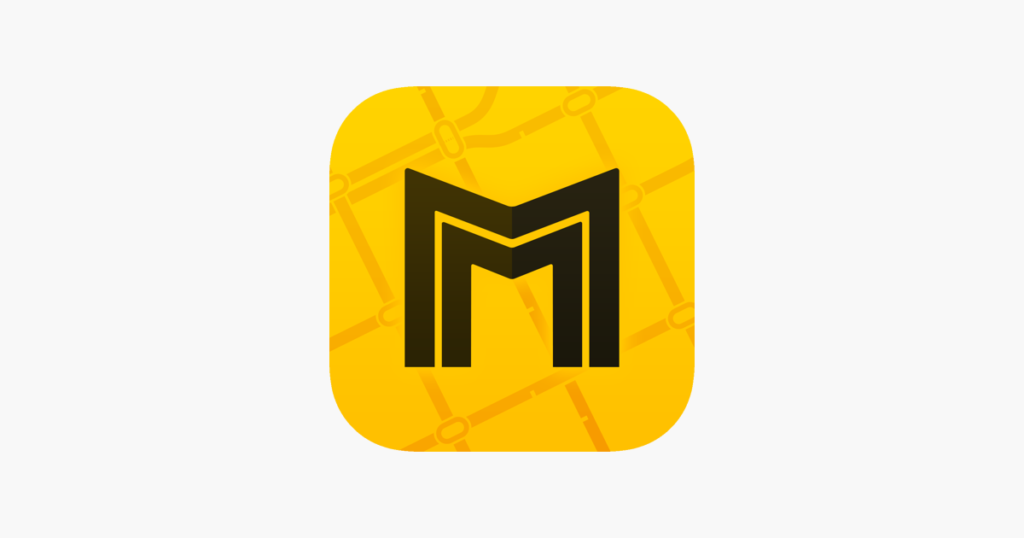
Download the Metroman app to assist you in navigating the subway system in China. You can purchase tickets at any metro station at a self-service machine or a manned service desk.
- High-speed trains: China has one of the largest high-speed rail networks in the world, offering fast and efficient train services between major cities. China’s high-speed trains are a popular option for long-distance travel, providing a comfortable and scenic way to explore the country.
- Domestic flights: China has a well-established domestic airline industry, with numerous airlines offering flights to cities across the country. Domestic flights in China are a convenient way to travel long distances quickly, especially if you have limited time in China.
We recommend using Trip.com for all train and flight tickets transport bookings in China.
- Taxis: Taxis are readily available in most cities and can be a convenient way to get around, especially for short distances or when public transportation is limited. Make sure to use licensed taxis and insist on using the meter to avoid being overcharged. Our experience of taxis during our China itinerary was that they were honest regarding the price and we did not feel ripped off at any stage.
- Ride-hailing services in China: Didi is the dominant ride-hailing service in China, offering an easy and convenient way to book private car rides or taxis through a mobile app.
- Bicycles: Many cities in China have public bicycle-sharing systems, allowing you to rent bicycles for short trips around the city. Biking is a convenient and environmentally friendly way to explore urban areas and scenic spots.
Is There Uber in China?

No, there is no Uber in China.
As mentioned above, Didi is now the dominant ride-hailing service in China, offering similar services to Uber through its mobile app.
Travelers can use Didi to book rides and get around in major cities in China.
Download the Didi app and set up an account or to save you downloading yet another China app, you can just use the Didi installed in your Alipay App. Read more about this in our guide to what China apps you will need to download before visiting.
Can you use ATMs in China?
Yes, you can use ATMs in China. Most major cities and tourist areas in China have ATMs that accept international credit and debit cards, such as Visa, MasterCard, and UnionPay.
As always, we highly suggest getting a travel money card to avoid any extra transaction fees.
What Socket Type to Use for my China Trip?

In China, the standard socket type used is Type A.
*Why not just purchase a Multi Travel Adapter so you are prepared for any plug type?!
What Language is Spoken in China?
The official language spoken in China is Standard Mandarin.
Here are 10 top phrases in Mandarin Chinese that may be useful for travelers to China:
- nǐ hǎo – Hello
- xièxiè – Thank you
- duìbùqǐ – Sorry
- qǐngwèn – Excuse me / May I ask
- qǐng – Please
- zàijiàn – Goodbye
- duōshǎo qián – How much is it?
- wǒ xiǎng qù – I want to go to…
- měiwèi de – Delicious
- bù hǎo yìsi – Excuse me / Sorry
Learning these basic phrases can be helpful for communication and navigating daily interactions while in China.
It is also worth noting that many Chinese people LOVE and very much appreciate when foreigners make an effort to speak a few words in Mandarin, so don’t be afraid to try!
What Packing Essentials do I Need for my China Travel?
- Passport and visa: Make sure you have your passport with at least six months validity and any necessary visas for entry into China.
- Power adapters and converters: China uses Type A and Type C power outlets, so you may need adapters and converters to charge your electronic devices.
- Battery Pack – Handy if you have any long train journeys or to charge your phone after all the photos taken.
- Comfortable walking shoes: You may be doing a lot of walking/hiking in China, so make sure to pack comfortable shoes.
- Weather-appropriate clothing: Check the weather forecast for your destination in China and pack clothing suitable for the season. Layers are always a good idea as temperatures can vary. Throughout our 30-day China itinerary, we encountered temperatures as high as 32°C, with our final destination being a cool 12°C!
- Toiletries and medications: Pack personal hygiene items, prescription medications, and any over-the-counter medicines you may need.
- Travel insurance: It’s always a good idea to have travel insurance to cover unexpected events like lost luggage or medical emergencies.
- Travel guide and maps: Download maps and translation apps to help you navigate your way around China.
- Download essential apps: Download Didi, Wechat, AliPay, Metroman and Baidu BEFORE you arrive in China.
- Travel bag or backpack: A sturdy and comfortable bag or backpack to carry your essentials (and snacks!) while sightseeing in China. Even better if it’s a dry bag to protect against rain.
- A sense of adventure and a BIG SMILE.
Check out our full list of travel tips to fully prepare for your China adventure.
Is it Safe to Visit China?
In short – Yes, China is safe to visit, we could even say that China is the safest place we have ever visited.
However, this is not to say you should not take precautions, always use your gut instinct regarding your own safety as you would anywhere in the world.
Below are some areas of caution to consider when visiting China:
- Personal Safety: China is safe for tourists. Violent crimes against tourists are rare, but petty theft and scams can occur, especially in crowded tourist areas.
- Health and Hygiene: Be mindful of food and water hygiene to avoid traveler’s diarrhea or food-related illnesses. We would recommend drinking bottled water.
- Motorbike Rentals: Motorbike accidents are relatively common, so if you’re renting a motorbike in China, don’t be stupid and wear a helmet.
- Cultural Sensitivities: Respect local customs, traditions, and cultural practices. Dress modestly when visiting temples or religious sites and remove shoes before entering sacred places.
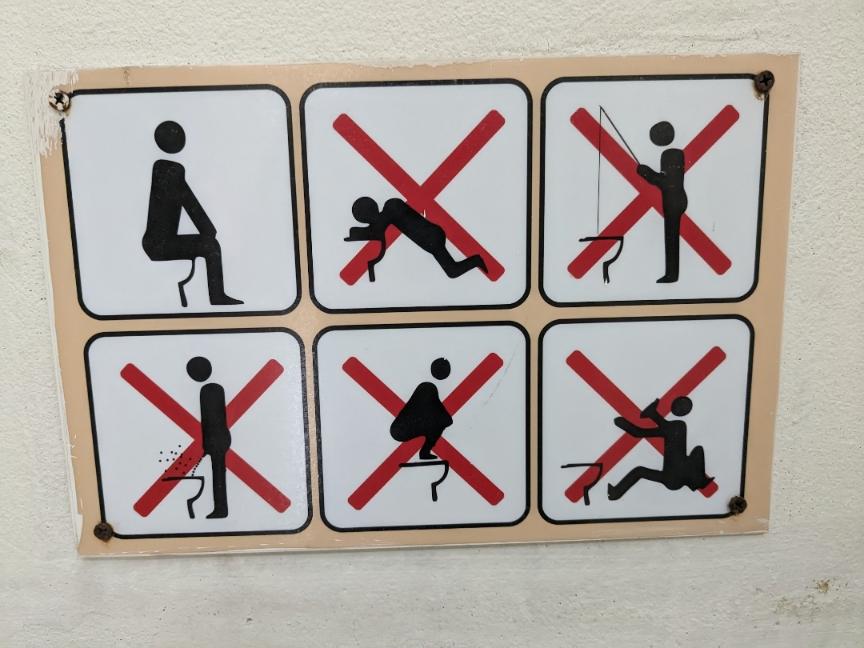
- Scams: Be cautious of scams, particularly in tourist areas. Common scams include tuk-tuk scams and offers that seem too good to be true.
- Natural Disasters: China can experience natural disasters like tropical storms, floods, and earthquakes, especially during certain seasons. Stay informed about weather conditions and follow local authorities’ advice in case of emergency.
Is China Worth Visiting?
Is China worth visiting? Another short answer – Yes, absolutely China is worth visiting! We loved our China travel.

China is worth visiting for many reasons, from its world wonders, rich history, stunning landscape, and most importantly, its amazing people. Chinese people now top our list, apart from Irish people of course, as being the best people in the world!
People tend to worry about the cultural differences in China, however, cultural differences only add to the fun, giving you a chance to step out of your comfort zone, learn about a new culture, and experience something totally different.
We can truly say that visiting China is an adventure like no other – in the best possible way!
Don’t just take our word for it and watch all our epic China travel adventures for yourself.
Enjoy Your China Travels!
We hope you fall in love with China as much as we did and that these China travel tips ease any uncertainty you may be feeling about visiting.
Is there anything we left out of these China travel tips or any other questions you may have about your trip?
If so, please feel free to leave us a message below or contact us through our socials.
Slán go fóil


This post contains affiliate links. If you click on the links to make a purchase, we will earn a small commission. This is at NO EXTRA COST to you. This is a free way to support us and allow us to continue to create inspiring adventure travel guides.


